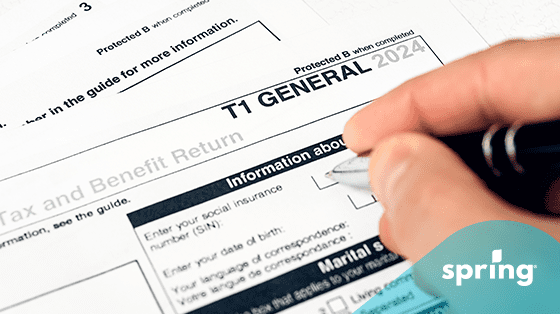The biggest factor in your interest rate when purchasing a vehicle is if the vehicle is used or new. New vehicles tend to have lower interest rates, while used vehicles tend to have higher interest rates. The average interest rate when purchasing a vehicle is 7.21%.
Best Car Loan Rates
What’s considered a good interest rate on a vehicle could vary depending on a few factors, the main one being the economy’s health. From there, your individual financial habits and credit history are considered to find the best rate for you. High credit scores and a good credit history are important when you’re looking for the best rates.
All of these factors are considered when evaluating your interest rate. You might be surprised to find that even with a lower credit score, you can still get a decent interest rate on a car loan. Your rate might not be as good as if you had a good credit score; luckily, auto loans can help you build your credit score in order to help decrease your interest rates.
This is because car loans or one of the easiest loans to get. Unlike an unsecured personal loan, car loans have an asset attached to them and are considered to be a secured loan. Even if you take out a personal loan in order to purchase a car, you’ll likely get a better deal with the car loan because of the security it provides the lender.
Keeping in mind that car loans over personal loans are secured, you can get a pretty great rate. They’ll often offer rates of just 5% or 6%. Sometimes, with new vehicles, you can get even lower interest rates, sitting around 3%.
Interest Rates in Different Provinces
Unlike housing prices, the cost of interest on vehicles doesn’t change based on where you live in Canada. There may be some slight differences, but in general, whether you live in British Columbia or Manitoba, the interest rates will stay the same.
The reason that the interest rates themselves don’t vary from province to province is because of Canada’s prime rate. That rate is the same for all of Canada and is what’s used by car loan lenders to establish base interest rates. Many car loan lenders and financial institutions that offer car loans are based throughout Canada and offer the same promotions and rates throughout the country.

Financing With Car Dealerships
When looking for in-house financing for a new vehicle, you’re likely to be offered some competitive car loan interest rates if you have a good Canadian credit score. This offer will include an annual percentage rate and any additional fees. If you’ve made a down payment, whether that’s cash or credit card payments, as part of the vehicle purchase, that will be shown in the loan agreement and be reflected in your loan balance.
That said, dealerships offer plenty of financing solutions for both new and used vehicles. However, the rate of used vehicles is considerably higher than that of new cars. You can get these with partnered banks and credit unions, and they come in the form of variable-rate loans as well as fixed-rate loans. A higher credit score will get you lower monthly payments.
No matter which type of vehicle you’re buying with a dealership, it doesn’t take long to get a pre-approval. The higher down payment that you can offer and your high credit score will affect your loan interest rates as well as your car payments. You do have to pay attention to any fees the lender charges, as well, because this will be included in the actual cost of the vehicle. You should also see if there are any prepayment penalties for paying off the vehicle early since this can cost you less interest in the long run.
Best Car Dealership Interest Rates
Often, dealerships offer very low interest rates to help keep up with their competition. In the past, you may have even seen promotions for 0% financing for some vehicles. Since interest rates have been rising due to the Bank of Canada (Canada’s central bank) combating inflation, the offer of 0% interest isn’t really seen anymore. There are still some really great offers available out there, though.
| Car Dealerships | Interest Rate | Vehicles |
| GMC | 1.99% for up to 60 months | All 2025 Hummer EV models |
| Chevrolet | 4.99% for 84 months | 2025 Chevy Blazer |
| Mitsubishi | 3.94% for up to 84 months | 2025 Mitsubishi Outlander PHEV |
| Audi | 4.98% for up to 48 months | 2025 Audi Q5 |
| Buick | 3.9% up to 48 months | 2025 Buick Encore GX |
| Volvo | Lease for 1.74% | 2025 XC60 |
| Ford | 0% for up to 72 months | 2025 Ford F250 |
| Jeep | Lease for 2.49% | 2024 Jeep Compass North |
These are just a few of the deals currently out there, and they are going to change quite often. There are also limitations, restrictions, and requirements for every offer, so check with your local dealership to see if you qualify.
Best New Car Interest Rates in Canada
When it comes to new car interest rates, the car loan rate you’re going to get is usually 0%. While most car loans used to start out at this rate based on the borrower’s credit score, Currently, though, the average car loan rate at a dealership through a bank is 2-3%. Many car loan interest rates range from 1.99% to 4.99%. However, these fixed-rate car loans also depend on the vehicle and the dealership.
Best Used Car Interest Rates in Canada
When it comes to used vehicles, you’re usually better off going through a bank or credit union than a dealership. This is because used car loan rates are higher than new car loan rates. Even though they’re considered secured loans, car financing can be expensive. You may find a better rate by getting a personal loan through a loan search platform. Finding the best car loan rate and the best car loans can be hard, but a little research can get you a great rate.
Banks and Their Car Loan Rates
There are other financial institutions and online lenders that offer car loans. With multiple lenders to choose from, it can be difficult to decide where to get your new or used car loan, but these banks have some of the most competitive rates out there. Let’s take a look at what they are.
Royal Bank of Canada
Whether you’re purchasing a new or used car, one of the financial institutions with the best rates on car loans is RBC. They actually have their own branch specifically for this purpose. It’s appropriately called RBC Auto Loans. If you’re going through a dealership, it’s likely they’re partnered with RBC. Otherwise, you can apply directly on their website.
Some great features you can access on their website are:
- Dealer locator tool
- Car loan calculator
- My auto affordability tool
Each one of these products has its own unique features. The car loan calculator helps you calculate your estimated monthly payment by taking into account the interest rate, down payment, cost of the vehicle and more. The affordability tool lets you know what you can realistically afford to pay for a vehicle, and the dealer locator helps you find a dealership near you.
RBC Auto Loans offers financing for used cars, new cars, RVs, boats, business vehicles, and electric vehicles.
Scotiabank
Scotiabank auto loans pride themselves on the fact they offer flexible loan terms at competitive rates. They offer:
- Repayment times of up to 96 months
- Financing of up to 90% of the purchase price
In order to qualify, you must:
- Be at least 18 years old
- Have steady income/employment
- Have complete comprehensive insurance on the vehicle you purchase
In order to apply, you need the following:
- Two pieces of government-issued ID
- Pay stubs
- An employment letter
- A paid utility bill
- Confirmation of other forms of financing
You can easily apply in person at your local branch or through your local dealership, where it may be referred to as an OAC Scotia Dealer Advantage loan.
Bank of Montreal
The Bank of Montreal also offers some competitive rates compared to other banks. They have plenty of different loans to choose from that can be used for anything you wish. On their website, you can also conveniently access their car loan calculator. This allows you to estimate what your monthly payments will be. The information requires to find out this information is:
- Price of your new vehicle
- Trade in vehicle value
- Down payment amount
- Province of residence (for sales tax purposes)
- Loan term
- Interest rate
- Payment Frequency
Once you’re ready to get a car loan, you can do so by calling BMO directly or visiting your local dealership.
TD Canada Trust
TD Canada Trust is another bank that has a department that is strictly for car loans. This department is called TD Auto Finance. They offer loans for a variety of different vehicles and offer the following options:
- Fixed interest rates
- Variable interest rates
- Flexible payment schedules
- Amortization terms up to 96 months
Some great features are also included with their auto loans:
- Payment extensions
- No penalties for lump sum payments or for paying the loan early
- Competitive renewal rates
- Warranty financing
- Tire storage financing
- Gap insurance financing
A feature that separates TD Auto Finance from other financial institutions is its auto financing app, TD Wheels. You can keep track of your auto loan and apply for your next car loan through this app. You can also apply by contacting TD Auto Finance over the phone or directly through the dealership. loan through this app. You can also apply by contacting TD Auto Finance over the phone or directly through the dealership.

Canadian Imperial Bank of Commerce
CIBC offers personal car loans. The great thing about their loans is that you can get them through the dealership and apply online or in person. As a bonus, their website is super transparent and tells you everything that you need to know.
Some key features included with a CIBC Car Loan are:
- Car loan terms of up to 8 years
- Competitive interest rates
- Loans on vehicles up to 10 years old
- Make payments anytime with no penalty
- Flexible payment schedules (bi-weekly, semi-monthly, and monthly options)
- 12-month minimum loan terms
When applying, the documents you should have are:
- Government-issued photo ID
- A void cheque
- 1 or 2 of your most recent pay stubs
- Letter of employment
- Most recent T4, T4A, or T1 plus Notice of Assessment
They even have a car loan calculator on their site to help you determine your payments.
One thing about CIBC car loans that differ from other banks is their special financing rates and government incentives for purchasing electric and hybrid vehicles.
Loans on Used Cars
Rates on used cars can be significantly higher than those of a new car purchase. The rates can range anywhere from 5% to 22.99%, resulting in higher monthly and biweekly payments. This is because the lender’s risk increases with the age of the vehicle. If you have a lower credit score on your credit report, this also puts you at a higher risk.
The rates on brand-new cars can be lower than 5%, depending on the brand of vehicle. That saids, the average rates are between 3 and 4%.
When determining interest rates, there are a few different factors lenders take into consideration, including:
- Credit scores
- Loan terms
- Vehicle values
Here is how each of these affects your interest rate.
Credit Score
Your credit score shows car lenders how reliable you are when it comes to making your payments on time and following through with your loan. That said, even with a poor credit score, you’ll likely get a car loan, just with higher rates.
An excellent credit score is likely to get you a loan in the 5% -6% range, whereas a poor credit score will most likely be around 20%. The rest will fall somewhere in the middle. This is because your credit score isn’t the only factor that’s looked at. The lender will also look at your credit history and your debt-to-income ratio. Having a lower debt ratio can show proper money management, whereas a higher DTI suggests poor money management. These also led a hand in the lender’s decision on auto loan rates.
Loan Terms
Loan terms directly correlate to auto loan rates. With most auto loans, the longer the loan duration, the larger your interest rate, and vice versa. This is because lower-term loans have lower amortization periods, which means higher payments. The longer the loan term, the lower the payments. This is why most experts recommend you stick to a 5-year loan or lower.
Vehicle Value
The vehicle’s value and condition affect the interest rate more than you may think. The more reliable the vehicle is, the lower the interest rate is going to be. This is the main reason brand-new vehicles have much lower interest rates than used ones. There’s no wear and tear on new vehicles to bring the value down. The vehicle value ties in directly with the loan amount. The higher the loan amount, the higher the risk to the lender. You also have to factor in maintenance costs. A new vehicle won’t have as many as a used vehicle.
Overview
Purchasing a vehicle in Canada is much simpler than you would think. Even if you have a bad credit score, you can still purchase a vehicle with auto financing. A vehicle loan is one of the simplest forms of financing to get, regardless of your credit rating. It also helps to boost your credit score when you make your payments on time.
Even though it can be fairly simple, it can be costly depending on your interest payments. This is why you want to shop around with different lenders, such as the big banks above and OAC National Bank loans, and compare interest rates before borrowing money for a vehicle. Whether you choose to go with a bank, credit union or dealership, it’s important to calculate the total interest paid and find the best value while getting the vehicle that suits your needs. Even if you don’t get the rate you want right away, after the term allocated in your loan, you can refinance for a lower interest rate as long as you qualify. Paying your bills on time can help you increase your credit score, lower your new or used vehicle interest rate and save money.








